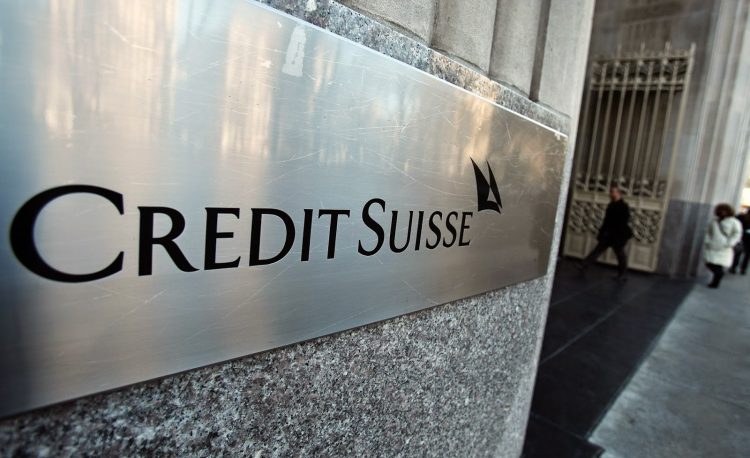Publisher: Maaal International Media Company
License: 465734
Market relief after Credit Suisse deal ebbed as focus shifted to bond risk
اقرأ المزيد
Banking stocks fell on Monday, as the initial calm that followed a historic deal backed by Swiss authorities to rescue troubled Credit Suisse by rival UBS ebbed, and new concerns emerged about the risks of high-yield debt issued by major banks.
In a Swiss regulator-supervised package announced on Sunday, UBS will pay 3 billion Swiss francs ($3.23 billion) to buy Credit Suisse, which was founded 167 years ago, and will incur losses of up to $5.4 billion, according to Reuters.
Faced with a rapidly spreading crisis of confidence in the financial system, major central banks on Sunday also sought to boost the flow of liquidity in the global banking system with a series of coordinated currency swaps to ensure banks get the dollars they need to conduct their operations.
Although these moves seemed to boost investor confidence at the beginning of Asian trading, the rally receded quickly, with focus shifting to the huge losses that some Credit Suisse bondholders would incur under the takeover deal.
Under the deal, the regulator of the financial sector in Switzerland decided to estimate the value of additional first-class bonds issued by Credit Suisse with a nominal value of $ 17 billion at zero, which angered some bondholders who thought that they would get more protection than what shareholders get in under acquisition deal announced on Sunday.
Concerns about what the move might mean for additional Tier 1 bonds issued by other banks added to ongoing concern about a range of risks, including spillover through the banking sector, vulnerabilities of local banks in the United States and moral hazard.
Shares of Standard Chartered and (HSBC) fell more than six percent each in Hong Kong today, Monday, to its lowest level in more than two months, while (HSBC) faces the possibility of recording the largest decline. in one day within six months. The (MSCI) index of financial sector stocks in Asia, excluding Japan, declined by 1.3 percent.
“It should be clear that this crisis, after more than a week of bank panic and two interventions by the authorities, is not going away,” said Mike O’Rourke, chief market strategist at Jones Trading. On the contrary, it has expanded globally.”
He added, “The news of UBS’ acquisition of Credit Suisse is likely to put Credit Suisse’s problems under the microscope by transferring it to UBS.”
Forced banking consolidation in Switzerland is backed by massive government guarantees to help prevent what would be one of the biggest banking meltdowns since the collapse of Lehman Brothers in 2008.
The pressure on UBS helped seal the deal on Sunday
“This is a historic day in Switzerland,” UBS Chairman Colm Kelleher told reporters on a conference call. Frankly, a day we did not wish for.”
He added, “I would like to make it clear that, although we were not the initiators of opening the talks, we believe that this transaction is financially attractive to UBS shareholders.”
Ralph Hammers, CEO of UBS Bank, said that there are still many details that have not yet been agreed upon.
“I know there must be questions that we don’t have answers to yet,” he continued. I understand that and I even want to apologize for it.”
In a global reaction that has not happened since the pandemic was at its peak, the Federal Reserve (the US central bank) said it had joined the central banks of Canada, England, Japan, the European Union and Switzerland in a coordinated action to boost market liquidity. The European Central Bank pledged to provide loans to support eurozone banks if needed, adding that Switzerland’s bailout of Credit Suisse was “important” to restore calm.
Credit Suisse’s operations apparently continued as normal at its main headquarters in Asia today, Monday
The US banking sector still suffers from some problems, as pressure continued on bank stocks despite the move of several major banks to deposit $30 billion in First Republic Bank, which was affected by the collapse of Silicon Valley and Signature banks.
On Sunday, Standard & Poor’s Global downgraded First Republic Bank’s credit rating and said a deposit injection might not solve its liquidity problems.
There are also concerns about what happens next at Credit Suisse and what that means for investors, customers and employees.
Credit Suisse said in a note to employees that once the acquisition deal is completed, some clients of the wealth management department may wish to transfer some of their assets to another bank if they have concerns about concentrating their assets in one bank.
The deal will also make (UBS) the only global bank in Switzerland, and the Swiss economy will become more dependent on one bank.
UBS Chairman said in a press conference that the bank will reduce the investment banking activities of Credit Suisse, which includes thousands of employees around the world. UBS said it expects to save about $7 billion in annual costs by 2027.
Credit Suisse shares lost a quarter of their value last week. The bank was forced to draw on $54 billion in central bank funding as it tries to recover from scandals that have undermined investor and customer confidence in it.









